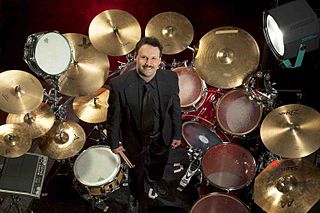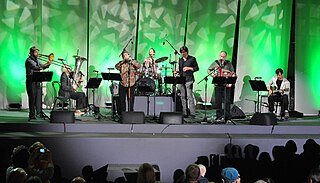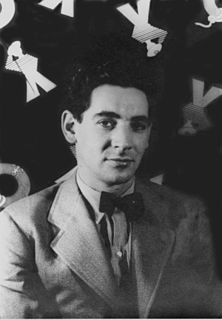 W
WSince Biblical times, music has held an important role in many Jews' lives. Jewish music has been influenced by surrounding Gentile traditions and Jewish sources preserved over time. Jewish musical contributions on the other hand tend to reflect the cultures of the countries in which Jews live, the most notable examples being classical and popular music in the United States and Europe. However, other music is unique to particular Jewish communities, such as klezmer of Eastern Europe.
 W
WEfim Alexandrov — Russian artist of "spoken word” genre and well known performer of Jewish music paying special attention to Yiddish folk songs as a part of the program of saving the culture of Yiddish which is considered an endangered language in Eastern Europe and Russia. He is a Meritorious Artist. (2007).
 W
WBlack Performance of Jewish Music has a long, studied, history of Black and Jewish musicians, songwriters, and performers influencing each other through their unique cultures that helped provide both groups with inspiration. Along with this collaboration, there is also the element of Jewish songs having a direct impact on Black musicians. Throughout musical history there are many iconic moments where Black artists performed Jewish music, including notable figures such as Paul Robeson, Cab Calloway, and Aretha Franklin. Many of these Black artists claim to feel a connection to the Jewish songs and people from their shared desire for freedom and sadness from leaving their ancestral lands.
 W
WThe bo is a percussion instrument originating in China, a type of cymbal. It consists of two plates that are clashed together. It is a concussion idiophone.
 W
WLeon Botstein is a Swiss-American conductor, educator, and scholar serving as the President of Bard College.
 W
WLike many other Hassidic movements, Chabad-Lubavitch has its own unique niggunim, or traditional melodies. Chabad niggunim were either composed or taught by the Rebbe of Chabad or their Hassidim. Niggunim are used to aid for meditation during Chasidic prayer or Torah study, as well as during farbrengens. some of these ancient Chabad melodies have recently made their way into mainstream music.
 W
WBrian Choper is an American percussionist, band manager, and author. He has more than 30 years of experience playing both nationally and internationally, has been featured on nine CD's, authored an educational book on music management, and started his own entertainment management company, Washington's Entertainment Connection/Bigshot Records.
 W
WDegenerate music was a label applied in the 1930s by the government of Nazi Germany to certain forms of music that it considered harmful or decadent. The Nazi government's concerns about degenerate music were a part of its larger and better-known campaign against degenerate art. In both cases, the government attempted to isolate, discredit, discourage, or ban the works.
 W
WLawrence Dermer is a Grammy nominated and BMI award winning record producer and multi-platinum songwriter.
 W
WIrving Fields was an American pianist and lounge music artist who was born in New York City. Some of his most noteworthy compositions include "Miami Beach Rhumba"; "Managua, Nicaragua"; and "Chantez, Chantez," covered by Dinah Shore in 1957. From November 1, 1954 to January 3, 1955, he and his orchestra appeared on the DuMont Television Network series The Ilona Massey Show, hosted by Ilona Massey.
 W
WMoritz Henle was a prominent German composer of liturgical music and cantor of the Jewish reform movement.
 W
WKnowledge of the biblical period is mostly from literary references in the Bible and post-biblical sources. Religion and music historian Herbert Lockyer, Jr. writes that "music, both vocal and instrumental, was well cultivated among the Hebrews, the New Testament Christians, and the Christian church through the centuries." He adds that "a look at the Old Testament reveals how God's ancient people were devoted to the study and practice of music, which holds a unique place in the historical and prophetic books, as well as the Psalter."
 W
WAbraham Zevi Idelsohn was a prominent Jewish ethnologist, musicologist and composer, who conducted several comprehensive studies of Jewish music around the world.
 W
WThe Jewish western art music is the art music which is created for performing and singing in a synagogue and is similar to the creation of church music known as classical music. Musical composition of verses for service is used for playing in liturgical events, holidays and shabbats as well as para- liturgical service events such as: weddings, Brit Milahs, and other performances with a Religious ground motive.
 W
WKlezmer is an instrumental musical tradition of the Ashkenazi Jews of Central and Eastern Europe. The essential elements of the tradition include dance tunes, ritual melodies, and virtuosic improvisations played for listening; these would have been played at weddings and other social functions. The musical genre incorporated elements of many other musical genres including Ottoman music, Baroque music, German and Slavic folk dances, and religious Jewish music. As the music arrived in the United States, it lost some of its traditional ritual elements and adopted elements of American big band and popular music. Among the European-born klezmers who popularized the genre in the United States in the 1910s and 1920s were Dave Tarras and Naftule Brandwein; they were followed by American-born musicians such as Max Epstein, Sid Beckerman and Ray Musiker.
 W
WRobert Lachmann was a German ethnomusicologist, polyglot, orientalist and librarian. He was an expert in the musical traditions of the Middle East, a member of the Berlin School of Comparative Musicology and one of its founding fathers. After having been forced to leave Germany under the Nazis in 1935 because of his Jewish background, he emigrated to Palestine and established a rich archive of ethnomusicological recordings for the Hebrew University of Jerusalem.
 W
WLeo Levi (1912–1982) was an Italian musicologist
 W
WFrank London is an American klezmer trumpeter who also plays jazz and world music.
 W
WThe Moscow Choral Synagogue is one of the main synagogues in Russia and in the former Soviet Union. It is located in central Basmanny District at 10 Bolshoy Spasogolinischevsky Lane, close to Kitai-Gorod Metro station. Chief Rabbi Adolf Shayevich is its spiritual head.
 W
WOhad Moskowitz, known professionally as Ohad, is an Orthodox Jewish vocalist who is one of the superstars of the contemporary Jewish religious music scene. He rose to international stardom in 2003 with his first solo album, Vearastich, produced by Yossi Green.
 W
WPJ Library is a program of the Harold Grinspoon Foundation, a North American Jewish non-profit organization based in West Springfield, Massachusetts. It was created in December 2005 as a Jewish engagement and literacy program for Jewish families with young children.
 W
WThe Rabbis' Sons is a Jewish music group that released most of its albums between 1967 and 1974. It consisted of Rabbis Baruch Chait, Label Sharfman (vocals), Itzy Weinberger (vocals) and Michael Zheutlin, with David Nulman on steel guitar and Mickey Lane on bass fiddle. The group got its name because Chait, Sharfman and Weinberger were all sons of rabbis.
 W
WSabbath in Paradise is a documentary film by Claudia Heuermann examining contemporary Jewish musical culture in New York's avant garde Jazz scene in the 1990s. It features concert footage and interviews with Anthony Coleman, Marc Ribot, Andy Statman, David Krakauer, Frank London, John Zorn and others.
 W
WLeonard Bernstein's Symphony No. 1 Jeremiah was composed in 1942. Jeremiah is a programmatic work, following the Biblical story of the prophet Jeremiah. The third movement uses texts from the Book of Lamentations in the Hebrew Bible, sung by a mezzo-soprano. The work won the New York Music Critics' Circle Award for the best American work of 1944.
 W
WSymphony No. 3 "Kaddish" is a programmatic choral symphony by Leonard Bernstein, published in 1963. It is a dramatic work written for a large orchestra, a full choir, a boys' choir, a soprano soloist and a narrator. "Kaddish" refers to the Jewish prayer that is chanted at every synagogue service for the dead but never mentions "death."
 W
WTerry Gibbs Plays Jewish Melodies in Jazztime is a 1963 studio album by Terry Gibbs.
 W
WTuretsky Choir is a Russian men's a cappella ensemble and musical collective under the direction of Mikhail Turetsky. Their voices range from tenore contraltino to basso profundo.